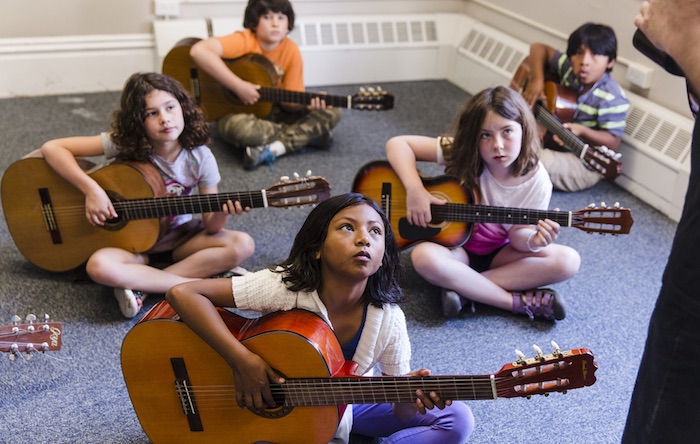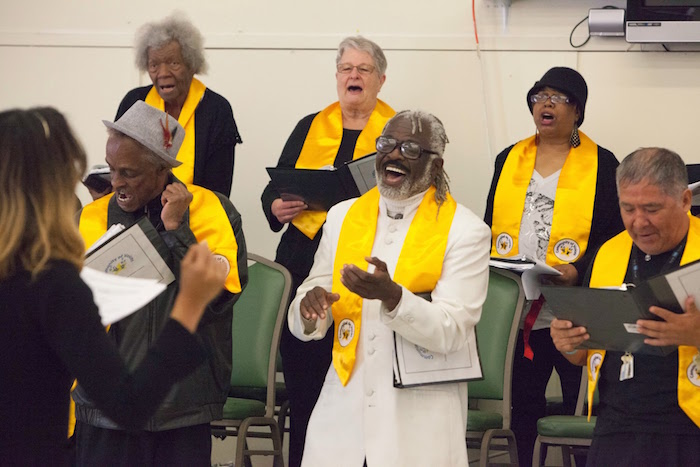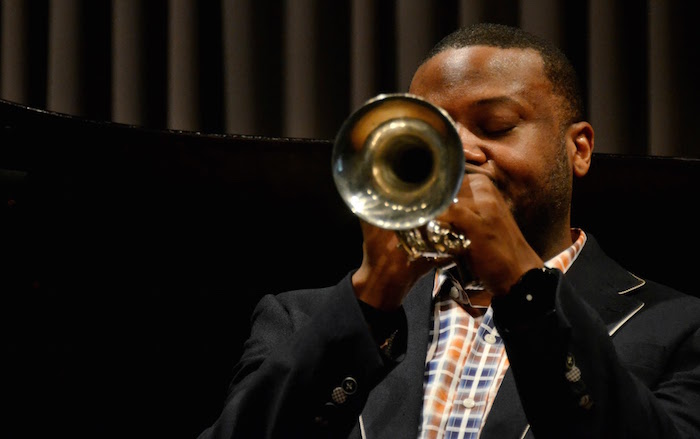ALL EARS “Take up a musical instrument. Practice for at least 20 minutes every day. It will change your life 100% for the better.”
That sage advice from a well-known local music writer, famous more for his work on electronic genres than strumming the ukulele (his surprise instrument of choice), has stuck with me through the summer — as I scroll past upright pianos and stand-up basses priced to sell due to hurried moves, and glance fretfully at that gorgeous acoustic guitar an ex once gifted me, propped against a bookcase for rustic effect.
“All you have to do is walk through our doors and we’ll find a way to connect you with music,” Sonia Caltvedt, marketing director for the Community Music Center told me. CMC — a music school, practice space, concert venue, and general place of tranquil joy (despite the muffled cacophony coming from an upstairs drum rehearsal) — serves all ages, skill levels, and curiosities, at a price (sliding scale discounts available for those who qualify) that makes that “100% change for the better” an accessible reality. New student registration starts Wed/26 for the fall quarter, which kicks off Sept. 4.

Seriously, private lessons are available in everything from the cheun qum (Chinese banjo) to Hungarian folk-singing (don’t worry, good ol’ guitar, piano, and violin are taught as well). You can pick up whatever new virtuoso skill you fancy.
But first you’ll have to pick your jaw up off the floor, for CMC is housed in one of those magical old Edwardians whose rooms and floors seem to go on forever, a multi-dimensional maze of musical invention, a buzzing Winchester Mystery House of harmony and counterpoint.
“In 1921, the center evolved from the Dolores Street Girls Club, which had been formed about 10 years earlier to help educate young women from poorer backgrounds about things like music,” Caltvedt told me. “An impressive group of the city’s rich and well-know women came together to form the school: Our original board had some pretty big names on it.
“They helped buy this entire house for the school …. for $6000.” (For reference, as if you need it, a bland-looking, gray-painted two-bedroom condo was being offered down the block for $868,000.)
“I think that’s one of the things that helps us survive in this changing real estate environment, especially in the Mission,” Calvedt said. “We’ve owned our own building for almost a century. We’re very lucky to have that history, and the foresight of that group of women.”

Now, the center also survives through a combination of public and private grants, individual donors, volunteers and part-time contributors, and tuition. A fundraising gala is held each spring, and corporate community grants also contribute. (In 2013, CMC’s extensive and vibrant older adult choir program won $250,000 as part of the Google Bay Area Impact Challenge.)
The center serves about 2400 students per quarter, with special outreach programs like adult choir that branch out into other neighborhoods, from the Bayview to the Richmond — and even other languages. “We started out with an English and Spanish, and then some of the Filipino members of the choir requested we sing songs in Tagalog, so now our 30th Street Senior Center sings in Tagalog as well,” Caltvedt said.
Despite this broad outreach, “Our main mission remains making music instruction accessible for neighborhood residents,” Caltvedt said. The center provided more than $1 million in tuition support and free programs in 2014. There are also free Discovery Camps for children to become familiar with different instruments, and tuition-free programs like the Mission District Young Musicians Program and the Inner City Young musicians Program. Summer Music Camps are also offered for kids.
Teachers, volunteers, and famous musicians like pianist Emanuel Ax and local jazz virtuoso Marcus Shelby instruct and perform. And an annual Christmas pageant, La Posarela, is a grand and colorful synthesis of Mexican holiday traditions and contemporary Mission District concerns (eviction, immigration) that outgrew the center and is now held at nearby Brava Theater.
Caltvedt herself became part of the center through her interest in flamenco and tango flute, she explained to me as we toured the bewildering warren of not-quite-soundproofed practice rooms, many featuring pianos, that start at $5 an hour. From there she was drawn into a bluegrass-banjo-to-Arabic-maqam institution where hers was hardly the most esoteric pursuit.
“I think we embody the concept of music as a great equalizers,” she said as we entered the gorgeous Art Deco-inspired recital hall, with floor to ceiling windows and a blindingly polished floor. A longtime member of the Center was practicing solo violin figures as Caltvedt continued. “We really do bring everybody in the neighborhood together with music, from new tech workers to longtime Latino families.”
Visit the Community Music Center website for more information.





The CMC is a great organization. I know several senior citizens who are taking up instrumental music for the first time thanks to this group.